The African Americans: Many Rivers to Cross - Season 1
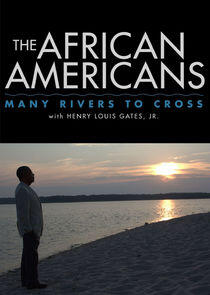
Season 1

Episodes
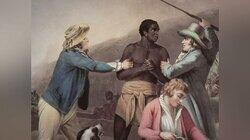
The Black Atlantic (1500-1800)
This episode explores the global experiences that created the African-American people. Beginning a century before the first documented "20-and-odd" slaves who arrived at Jamestown, Virginia, the episode portrays the earliest Africans, slave and free, who arrived on these shores. The transatlantic slave trade soon became a vast empire connecting three continents. Through stories of individuals caught in its web, the episode traces the emergence of plantation slavery in the American South and examines what the late 18th-century era of revolutions - American, French, and Haitian - would mean for African Americans and slavery in America.
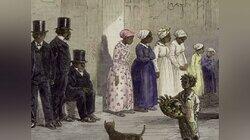
The Age of Slavery (1800-1860)
This episode illustrates how black lives changed dramatically in the aftermath of the American Revolution. For free black people, these years were a time of opportunity, but for most African Americans, the era represented a new nadir. King Cotton fueled the rapid expansion of slavery into new territories and the forcible relocation of African Americans to the Deep South. Yet, as slavery intensified, so did resistance. Individuals including Harriet Tubman, Richard Allen, and Frederick Douglass pushed the issue of slavery to the forefront of national politics. From individual acts to mass rebellions, African Americans demonstrated their determination to undermine and ultimately eradicate slavery.
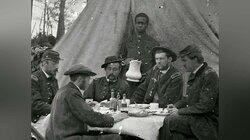
Into the Fire (1861-1896)
This episode examines the most tumultuous and consequential period in African-American history: the Civil War and the end of slavery, and Reconstruction's thrilling but brief "moment in the sun." From the beginning, African Americans were agents of their liberation - by fleeing the plantations and taking up arms to serve in the United States Colored Troops. After Emancipation, African Americans sought to realize the promise of freedom - rebuilding families shattered by slavery; demanding economic, political, and civil rights; even winning elected office - but a few years later, an intransigent South mounted a swift and vicious campaign of terror to restore white supremacy and roll back African-American rights. Yet the achievements of Reconstruction remained in the collective memory of the African-American community.
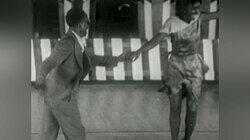
Making a Way Out of No Way (1897-1940)
This episode portrays the Jim Crow era when African Americans struggled to build their own worlds within the harsh, narrow confines of segregation. At the turn of the 20th century, a steady stream of African Americans left the South, fleeing the threat of racial violence and searching for opportunities in the North and West. Leaders like Ida B. Wells, W.E.B. Du Bois, Booker T. Washington, and Marcus Garvey organized, offering different strategies to further black empowerment and equality. The ascendance of black arts and culture showed that a community with a strong identity and sense of pride was taking hold in spite of Jim Crow. "The Harlem Renaissance" redefined how America saw African Americans - and how African Americans saw themselves.
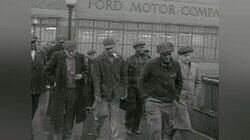
Rise! (1940-1968)
This episode examines the long road to civil rights when the deep contradictions in American society finally became unsustainable. African Americans who fought fascism in World War II came home to face the same old racial violence. But mass media - from print to radio and TV - broadcast that injustice, planting seeds of resistance. The success of black entrepreneurs and entertainers fueled African-American hopes and dreams. In 1955, Rosa Parks refused to give up her seat on a city bus in Montgomery, Alabama, heralding the dawn of a movement of resistance, with Dr. Martin Luther King, Jr. as its public face. Before long, masses of African Americans practiced this nonviolent approach to integrate blacks and whites in public schools, lunch counters, and more. Nonviolence, however, was often met with violence. In 1968, Dr. King was assassinated, unleashing a new call for "Black Power" across the country.
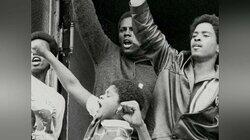
A More Perfect Union (1968-2013)
After 1968, African Americans set out to build a bright future on the foundation of the civil rights movement's victories, but a growing class disparity threatened to split the black community. As African Americans won political office across the country and the black middle class made progress, larger economic and political forces isolated the black urban poor. When Barack Obama was elected president in 2008, many hoped that America had finally transcended racism. By the time of his second victory, however, it was clear that many issues, including true racial equality, remain to be resolved. How will African Americans help redefine the United States in the years to come?
Recently Updated Shows

Days of Our Lives
Days of our Lives is set in the fictitious Midwestern town of Salem. The core families are the Bradys, the Hortons and the DiMeras, and the multi-layered storylines involve elements of romance, adventure, mystery, comedy and drama.
Beginning on September 12, 2022, DAYS became exclusive to streaming on Peacock.

The Great Pottery Throw Down
Britain's best home potters compete to become champion of the wheel in Stoke-on-Trent, the home of pottery. Let the battle of clay commence!

Suits LA
In Suits LA,Ted Black, a former federal prosecutor from New York, has reinvented himself representing the most powerful clients in Los Angeles. His firm is at a crisis point, and in order to survive he must embrace a role he held in contempt his entire career. Ted is surrounded by a stellar group of characters who test their loyalties to both Ted and each other while they can't help but mix their personal and professional lives. All of this is going on while events from years ago slowly unravel that led Ted to leave behind everything and everyone he loved.

FBI: Most Wanted
FBI: Most Wanted is a high-stakes drama that focuses on the Fugitive Task Force, which relentlessly tracks and captures the notorious criminals on the Bureau's Most Wanted list. Seasoned agent Jess LaCroix oversees the highly skilled team that functions as a mobile undercover unit that is always out in the field, pursuing those who are most desperate to elude justice.

The Night Agent
The Night Agent is a sophisticated, character-based, action-thriller centering on a low-level FBI Agent who works in the basement of the White House, manning a phone that never rings — until the night that it does, propelling him into a fast-moving and dangerous conspiracy that ultimately leads all the way to the Oval Office.